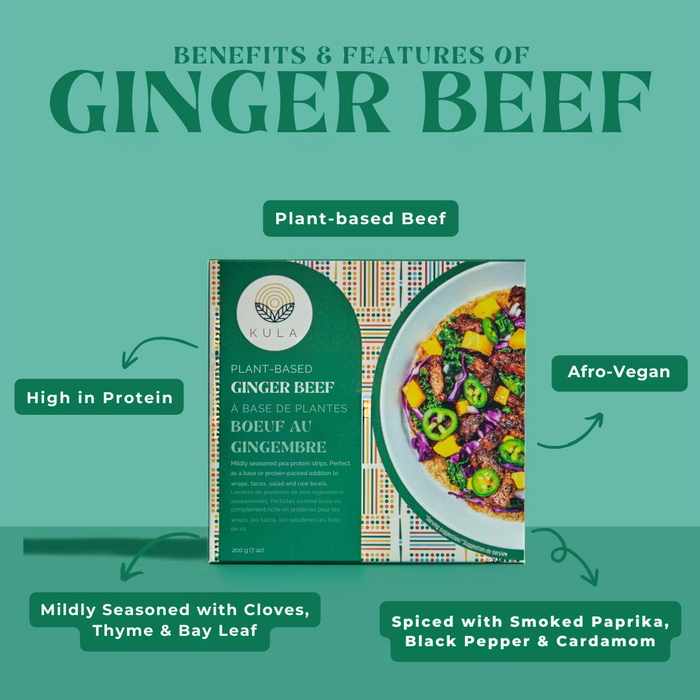A Beginner’s Guide to Cooking With Plant Based Chicken at Home
A Beginner’s Guide to Cooking With Plant Based Chicken at Home
Blog Article
All About Healthy And Balanced Food: Advantages of Taking On Plant Based Alternatives
The discussion bordering plant-based diet regimens has obtained significant focus over the last few years. Several people are exploring the prospective health advantages, dietary advantages, and environmental influences connected with these nutritional choices. As individuals come to be much more familiar with their food's impact on health and sustainability, questions occur regarding the usefulness of taking on such a way of living. What particular adjustments can one expect, and exactly how might these options reshape not just personal health and wellness yet additionally the world's future?
Comprehending Plant-Based Diet Plans
Although lots of people link plant-based diet regimens generally with vegetarianism or veganism, these diets can incorporate a vast array of consuming patterns that focus on entire, minimally processed plant foods. Such diet regimens often consist of fruits, vegetables, whole grains, legumes, nuts, and seeds, while eliminating or restricting animal products. This flexibility enables people to customize their dietary options according to dietary needs and individual preferences. Some may adopt a mainly plant-based diet while still periodically consuming meat or dairy products, frequently referred to as a flexitarian technique. The focus remains on integrating even more plant foods, which can bring about a varied selection of dishes and flavors. Recognizing these numerous analyses of plant-based eating is necessary for appreciating its access and allure in modern food society.
Health And Wellness Advantages of Plant-Based Foods
The wellness advantages of plant-based foods are considerable, providing a nutrient thickness advantage that supports total health. Research indicates that these foods can boost heart health and wellness and play a vital duty in efficient weight management. By integrating extra plant-based choices, people may boost their nutritional options and promote lasting health.
Nutrient Thickness Benefit
Nutrient density plays a crucial function in the health and wellness advantages of plant-based foods, making them an engaging selection for those seeking a balanced diet plan. Plant-based foods, such as fruits, vegetables, beans, nuts, and entire grains, are commonly abundant in crucial vitamins, minerals, and anti-oxidants while being reduced in calories. This high nutrient density enables individuals to eat fewer calories while still fulfilling their nutritional demands. Additionally, these foods are packed with nutritional fiber, promoting digestive system health and wellness and aiding in weight management. By including nutrient-dense plant-based alternatives, customers can enhance their general health and wellness, support their immune systems, and reduce the danger of chronic illness. Eventually, the nutrient thickness of plant-based foods emphasizes their importance in a health-conscious way of living.
Heart Health And Wellness Enhancement

Weight Management Support
In enhancement to advertising heart health and wellness, a plant-based diet regimen can considerably aid in weight administration. This nutritional technique highlights entire foods such as fruits, veggies, vegetables, nuts, and entire grains, which are normally reduced in calories and greater in fiber contrasted to animal-based items. The high fiber web content helps raise satiety, minimizing total calorie intake. Moreover, plant-based diet plans are frequently abundant in important nutrients while reduced in harmful fats, making it much easier to maintain a healthy weight. BBQ Sauces. Study indicates that individuals that adopt a plant-based way of life have a tendency to have lower body mass indexes (BMIs) and experience more effective weight-loss contrasted to those who take in meat-heavy diets. Welcoming plant-based options is a tactical selection for effective weight administration.
Nutritional Value of Plant-Based Ingredients
Plant-based ingredients are rich in vital nutrients, offering a diverse variety of vitamins, minerals, and anti-oxidants that contribute to overall health and wellness. A contrast of healthy protein sources discloses that while pet items are often considered as exceptional, lots of plant-based alternatives provide adequate protein and various other beneficial substances. Recognizing the dietary value of these components can help individuals make informed dietary selections.
Essential Nutrients in Plants
Nutrient-rich ingredients discovered in plants provide a diverse array of essential nutrients that contribute significantly to total wellness. These components are rich in vitamins A, C, and K, which sustain immune feature, vision, and blood clotting, specifically. Additionally, plants supply crucial minerals such as potassium, magnesium, and calcium, critical for heart wellness, muscular tissue feature, and bone strength. The visibility of fiber in plant-based foods aids food digestion and promotes a healthy intestine microbiome. Antioxidants, found generously in veggies and fruits, assistance combat oxidative anxiety and lower swelling. Furthermore, several plant foods are low in calories yet high in nutrients, making them an outstanding selection for those seeking to keep a healthy weight while ensuring suitable nutrient intake.
Comparing Healthy Protein Resources
Healthy protein resources vary considerably in their dietary accounts, with plant-based components using one-of-a-kind benefits. Unlike pet proteins, which frequently have hydrogenated fats and cholesterol, plant healthy proteins have a tendency to be lower in these harmful components. Legumes, nuts, seeds, and whole grains are abundant in necessary amino acids, fiber, vitamins, and minerals. Lentils offer high healthy protein material together with significant iron and folate, while quinoa is a complete healthy protein, providing all 9 essential amino acids. In addition, plant-based healthy proteins are frequently come with by antioxidants and phytochemicals that support total health and wellness. The change to plant-based protein resources not just improves nutritional intake but likewise lines up with lasting dietary techniques, decreasing environmental influence and promoting lasting health advantages.
Environmental Influence of Plant-Based Eating
As understanding of environment modification expands, numerous people are exploring lasting nutritional choices that can greatly minimize their ecological footprint. Plant-based eating has become a significant contributor to lowering greenhouse gas emissions, which are primarily related to livestock production. The growing of fruits, grains, vegetables, and vegetables usually requires fewer resources, such as water and land, contrasted to pet farming. Furthermore, plant-based diets can lead to decreased deforestation, as much less land is needed for grazing animals or expanding pet feed. By shifting in the direction of plant-based choices, consumers can sustain biodiversity and advertise much healthier communities. On the whole, embracing plant-based consuming not only benefits individual health and wellness however additionally represents a vital action towards environmental sustainability and preservation efforts.
Overcoming Common Misconceptions
While numerous individuals acknowledge the advantages of a plant-based diet, several mistaken beliefs usually hinder them from completely welcoming this way of living. An usual idea is that plant-based diet plans lack adequate healthy protein; however, various plant resources, such as legumes, nuts, and tofu, provide ample healthy protein. In addition, some presume that this diet plan is expensive, when actually, staples like beans, rice, and seasonal vegetables can be fairly economical. Another misunderstanding is that plant-based eating is overly limiting, whereas it really offers a diverse variety of flavors and foods. Several fret that a plant-based diet might lead to deficiencies, yet with proper preparation, individuals can get all needed nutrients, including vitamins and minerals, while taking pleasure in a wide selection of delicious dishes. Large Tips for Transitioning to a Plant-Based Way of life
Making the change to a plant-based way of life can be an improving experience, though it typically calls for some support to navigate the preliminary adjustments. First, people are urged to start progressively, incorporating even more fruits, veggies, legumes, and entire grains right into their meals while minimizing meat and dairy consumption. Dish preparation is important; preparing an once a week food selection can aid relieve the adjustment and prevent final harmful options. Discovering new dishes and cooking techniques can additionally enhance the experience and maintain excitement about plant-based consuming. In addition, signing up with support system or areas can provide motivation and share important tips. Staying informed concerning nourishment warranties well balanced dishes, stopping deficiencies while promoting a healthy, rewarding plant-based lifestyle.

Delicious Plant-Based Meal Concepts
Exploring tasty plant-based meal ideas can motivate individuals to accept an extra nourishing diet plan. One preferred option is a passionate quinoa salad, including cherry tomatoes, cucumber, and a tangy lemon-tahini clothing. An additional favorite is a mouthwatering lentil stew, loaded with carrots, celery, and aromatic natural herbs, perfect for a soothing supper. For morning meal, over night oats made with almond milk, chia seeds, and covered you could try these out with fresh berries supply a nutritious begin to the day. Additionally, a vibrant veggie stir-fry with tofu and a variety of colorful veggies can be a fast yet pleasing dish. Creamy avocado salute on whole-grain bread, sprinkled with seeds and spices, provides a basic yet delicious snack. These dishes display the variety and richness of plant-based eating.

Regularly Asked Questions
Can a Plant-Based Diet Regimen Provide Sufficient Healthy Protein?
The question of whether a plant-based diet plan can provide adequate protein prevails. Numerous resources, including legumes, nuts, seeds, and whole grains, can fulfill protein requires successfully, supporting a well balanced and nutritious diet regimen for people.
Are Plant-Based Diet Regimens Appropriate for Kid?
The suitability of plant-based diets for kids depends upon careful preparation. Sufficient nutrients have to be ensured, including minerals, healthy proteins, and vitamins. With proper support, such diets can sustain healthy growth and growth in children.
Exactly how Do I Dine Out on a Plant-Based Diet plan?
Eating in restaurants on a plant-based diet entails seeking dining establishments with varied menus, requesting for adjustments, and discovering vegan-friendly options. Planning in advance and connecting dietary preferences can boost the eating experience while maintaining dietary options.
What Prevail Irritants in Plant-Based Foods?
Common allergens in plant-based foods include soy, gluten, nuts, and seeds - BBQ Sauces. People complying with a plant-based diet regimen ought to understand these irritants and review labels very carefully to stay clear of unfavorable responses and assure secure consumption
Can Plant-Based Diets Assist With Weight Loss?
Research find here study suggests that taking on a plant-based diet regimen might facilitate weight reduction because of its usually reduced calorie thickness and greater go to this web-site fiber material. This mix can boost satiation, aiding people manage their calorie intake efficiently. Lots of people link plant-based diet plans mostly with vegetarianism or veganism, these diet regimens can incorporate a vast array of consuming patterns that focus on entire, minimally processed plant foods. Nutrient density plays a vital function in the wellness advantages of plant-based foods, making them an engaging option for those seeking a balanced diet regimen. Plant-based diets have actually been revealed to substantially enhance heart health and wellness, as they typically consist of aspects that support cardio feature. In enhancement to promoting heart health, a plant-based diet plan can substantially help in weight monitoring. An usual belief is that plant-based diets do not have adequate protein; however, countless plant sources, such as beans, nuts, and tofu, supply adequate protein.
Report this page